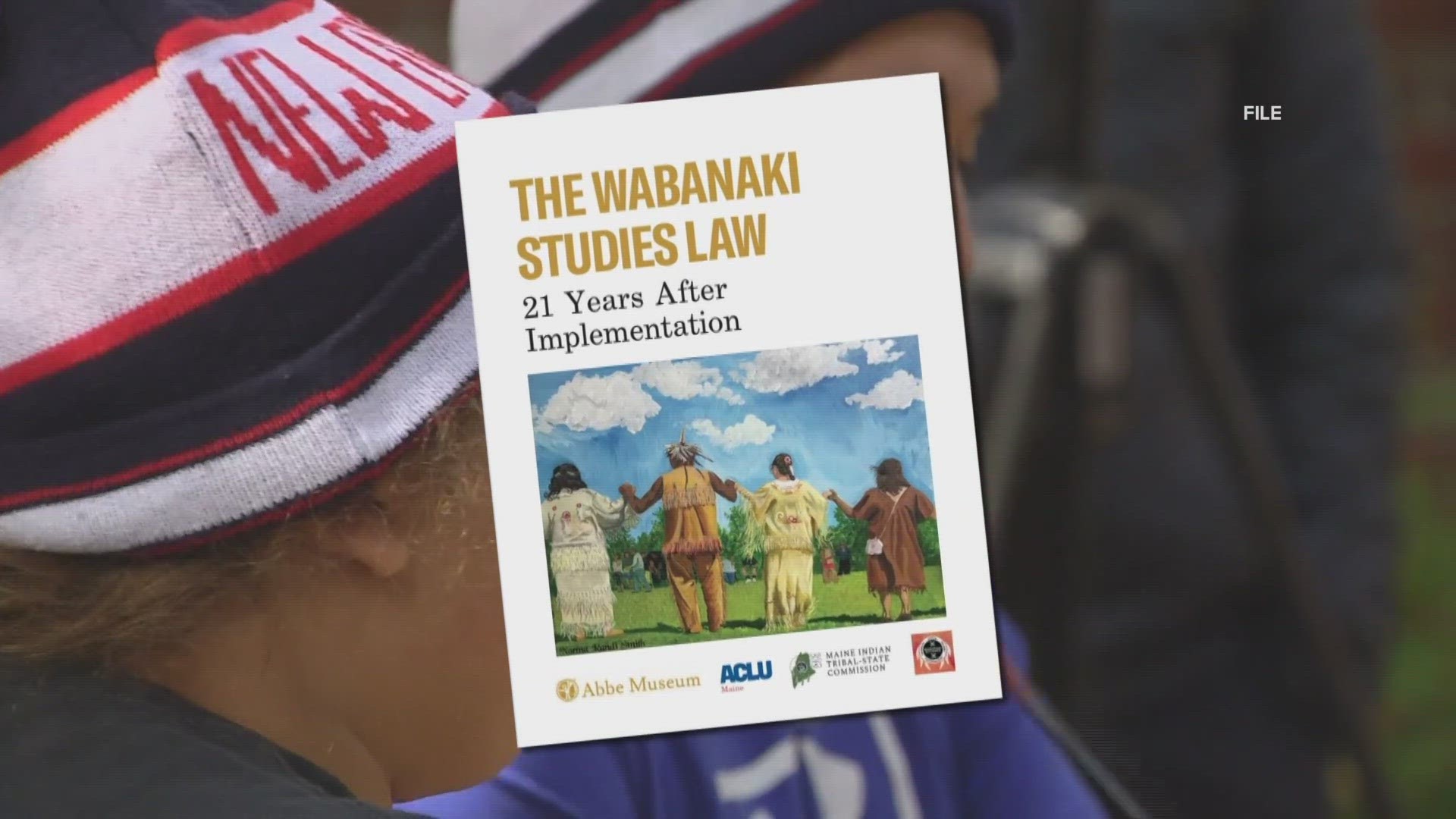PORTLAND, Maine — According to a report that came out last October, Maine school districts have been failing when it comes to teaching Wabanaki studies despite a 2001 law requiring schools to teach Wabanaki history and culture.
Now, Portland Public Schools is making significant strides to improve its curriculum, something it has been working on since 2018. The district has developed a curriculum being taught in classrooms this school year.
"Without Wabanaki studies in place at schools, most people who aren't growing up either in or near an indigenous community could be unaware there even are indigenous communities in this, what is now called Maine," Fionna Hopper, the district's social studies and Wabanaki studies coordinator, told NEWS CENTER Maine in May 2022.
Students in Kindergarten, first, third, and seventh grade are currently learning with the new unit-based curriculum in classrooms starting this school year. While developers are still working to completely finish units for other grades, second, fourth, and fifth graders are learning from lesson plans.
Developers hope to have the curriculum fully implemented in classrooms next school year for all grade levels except sixth and 12th graders.
"To see the collaborative approach, the real genuine and authenticity of how they've gone about it. I can't say enough great things about the way they've put this together," Penobscot Nation Ambassador Maulian Dana, said.
Curriculum developers collaborated with more than 40 Wabanaki contributors, according to Hopper. Dana served as an adviser, reviewing course materials and giving feedback throughout the process.
"The more kids can have this knowledge and learn about indigenous people the more it chips away from that ignorance," she said.
Dana says she hopes Portland can be the model for other districts to develop curriculums like this to meet the Wabanaki Studies Law's requirements.
"The more kids can have this knowledge and learn about indigenous people the more it chips away from that ignorance," Dana said.

